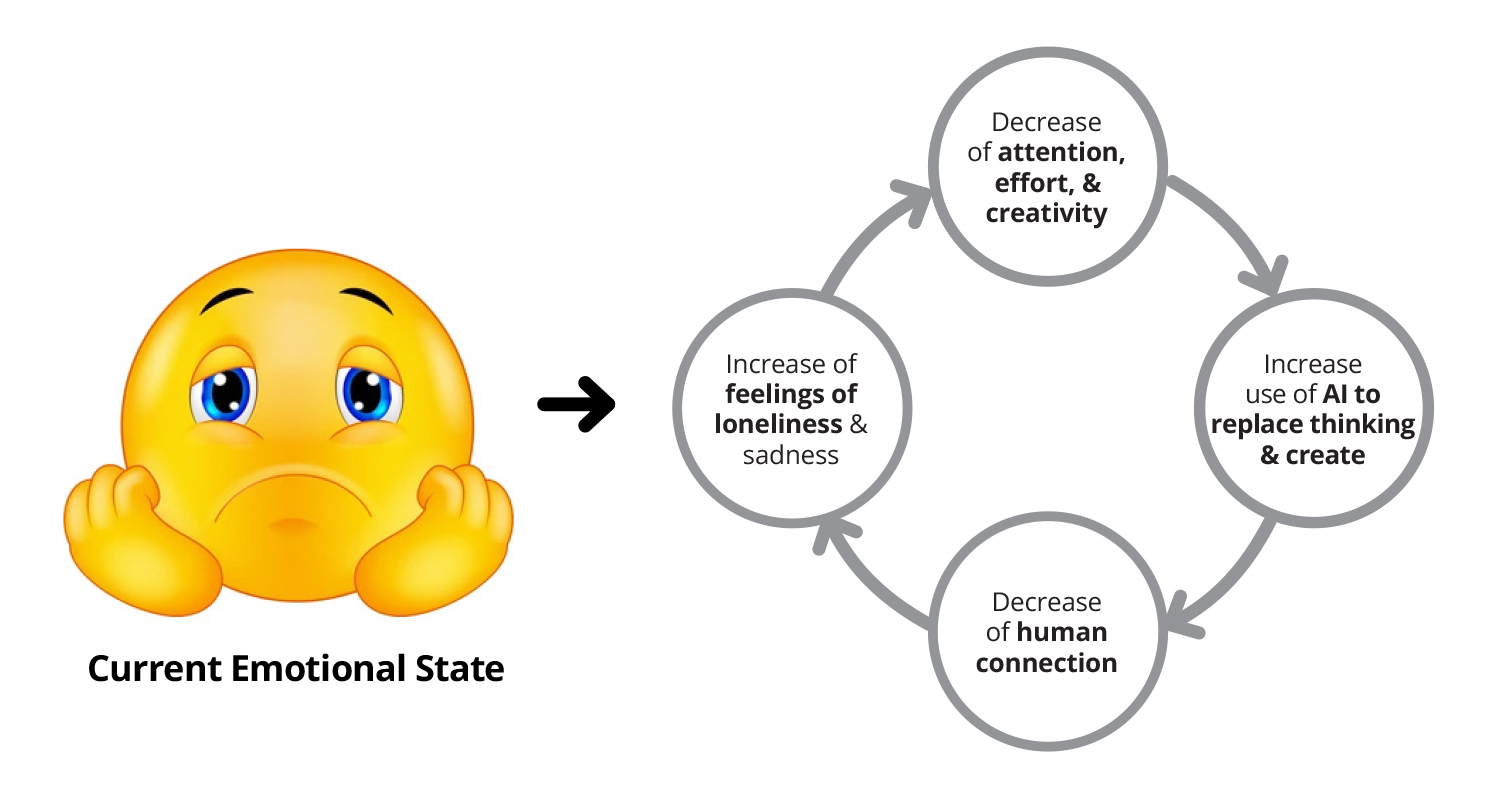
Last week, I came across a recent MIT study designed to investigate the impact of AI in learning environments. Based on the assigned problem-solving approach, 54 adults were divided into three groups to complete multiple creative tasks in four sessions.
- Group 1: AI. These participants were restricted to using only ChatGPT to complete the tasks. They were not allowed to use other browsers or apps.
- Group 2: Search Engine. These participants could use any website to help them complete the tasks, but ChatGPT was explicitly prohibited.
- Group 3: Brain. These participants were not allowed to use AI or any online websites at all to complete the tasks.
In the last session, participants were placed on the opposite group – so those who used ChatGPT could not use it, and those who did not use it in the first sessions, had to use it. Electroencephalography (EEG) was used to record participants’ brain activity to assess their cognitive engagement and cognitive load, and to gain a deeper understanding of neural activations during the completion of the tasks. After each session, participants were interviewed to shed light on the decisions they made and how they approached the tasks.
Natural Language Processing (NLP) analysis was performed and both human teachers and an AI judge evaluated students’ outputs.
Results were conclusive: relying on generative AI tools like ChatGPT during early stages of a creative activity – such as writing, generating ideas, designing – weakens neural activity, memory, and originality. Most outputs generated using AI presented a similar structure, approach, and content. Participants in this group also copied and pasted content rather than generated original thoughts or added personal experiences. In contrast, not using a technological tool led to participants using more varied problem-solving approaches and generating diverse ideas.
In short, this study provides evidence of the negative impact of AI on both students’ creativity and critical thinking during conceptual stages. These results add to the discussion of whether AI should be integrated into education environments. While I’m not a fan, I’m not against the use of AI either – However, the way it is used can lead to positive or negative outcomes.
Here is an example from last year that illustrates my point. At the end of a talk, a person asked me:
What is the future of designers? Won’t they become obsolete as AI can do the same? What is the point of studying design or any creative skills?
I gave my honest answer:
To me AI is just like any other tool – it is as good or as bad as we let it be. If you teach or encourage students to solely rely on AI to think, generate ideas, create imagery, and build the final outputs; so yes, learning more technical design skills will not be necessary. However, if you teach students how to use AI to support the process or optimize some steps, such as testing color palettes or creating multiple versions of a concept to help assess whether it could work; so no, designers will not be replaced.
The problem is not AI – or social media, or technology – per se. The problem is when we do not regulate how we engage with it, creating a vicious cycle (figure above!) which is fed by several actions:
- People’s psychological well-being has been deteriorating by the current state of the world.
- As a result, people’s lack of attention makes them more prone to want to find easy ways to do things.
- Going back to education, many students do not want to put the effort to learn and “allow” AI to take control of everything they have to do, rather than use it only for specific, more tactical tasks or to support their learning.
- The overuse of technology have several negative consequences. In addition to reducing cognitive function, as the MIT study showed, it also increases social disconnection, which intensifies feelings of isolation and depression.
Human relationships and social connectedness are the most important components for emotional well-being, feeling happy, and living a good life. The more humanly disconnected we are, the more our well-being decreases. This was one of the most important findings from the “World’s Longest Study of Happiness” led by Harvard Medical School. As professor Arthur Brooks writes “unhappy people make great consumers” …of clothes, food, and also AI. Having a rich social media network with millions of followers does not replace human connections.
Despite creativity described as many universities’ mission, increasingly education programs are mostly investing on teaching AI-related skills, like programming, coding, machine learning, specialized frameworks. Non-cognitive skills – social skills, perseverance, confidence, motivation, learning strategies, imagination – remain largely ignored (at least in higher education), perpetuating the cycle. Ironically, these are the skills which are vital for both academic achievement and emotional well-being. These are the skills which will equip future generations to imagine and co-create a happier world, and confidently navigate uncertainty and ambiguity.
You must be logged in to post a comment.